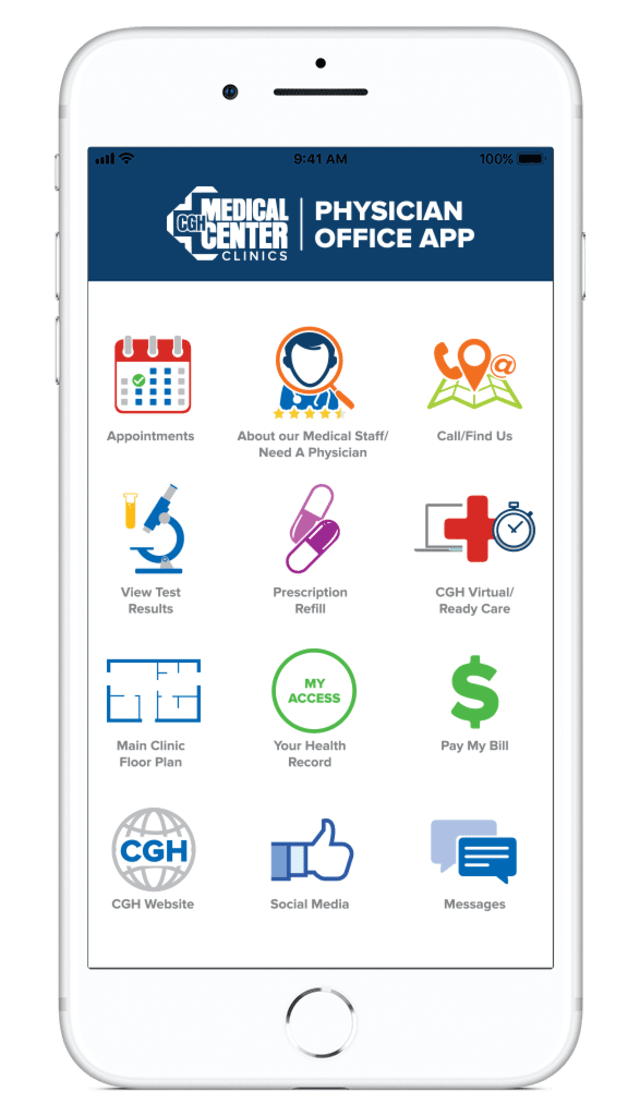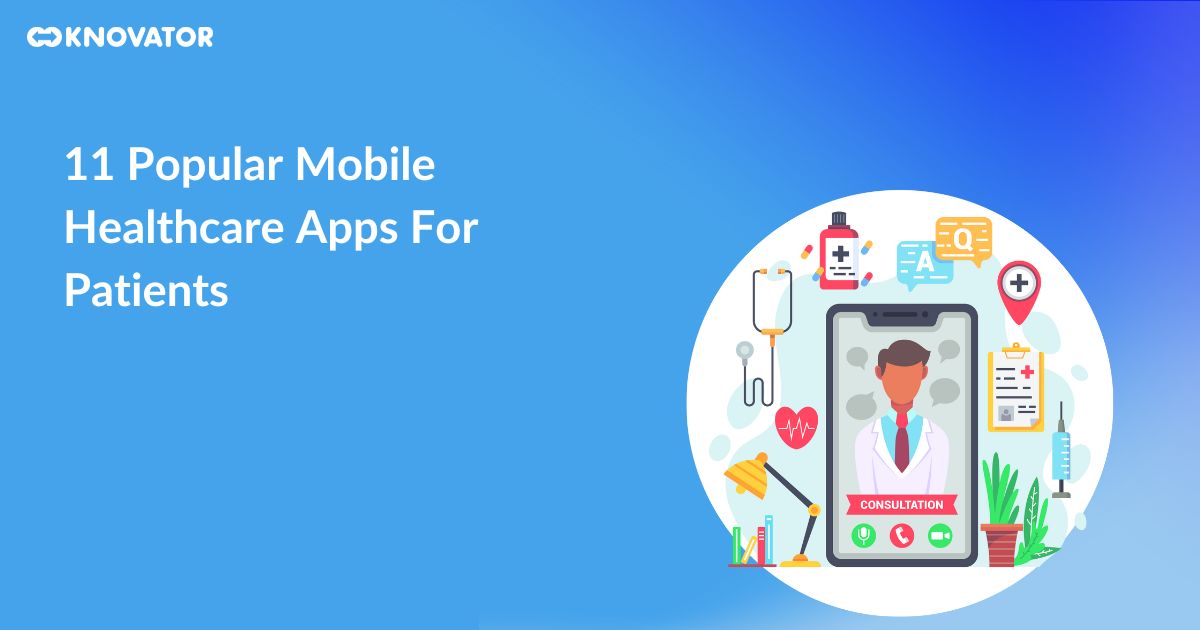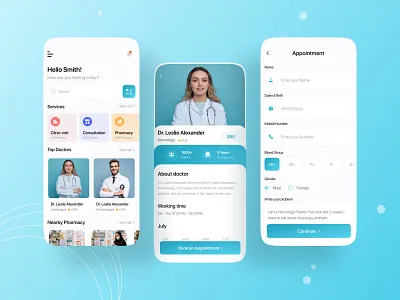Enhancing Patient Engagement Via a Mobile App for Clinics: Secret Strategies
Enhancing Patient Engagement Via a Mobile App for Clinics: Secret Strategies
Blog Article
The Future of Medical Care: Why Clinics Required a Mobile App Today
As the health care landscape remains to evolve, clinics face installing stress to adjust to individual expectations for greater comfort and access. The integration of mobile applications can function as a crucial method for boosting client engagement and streamlining operations. By leveraging innovation to boost interaction and offer important solutions, centers not just address present needs however additionally position themselves for future success. The implications of this shift extend past simple operational effectiveness; they might redefine individual relationships and care delivery in extensive means. What might this makeover look like for both facilities and individuals?
Transforming Individual Expectations
As the landscape of medical care advances, client assumptions are undertaking a substantial change. Today's clients are increasingly seeking comfort, ease of access, and personalized care. With the surge of innovation, specifically mobile applications, people currently expect a smooth combination of medical care services right into their day-to-days live. They prefer the capability to manage visits, accessibility clinical records, and interact with doctor with their mobile phones, showing a change in the direction of a more proactive strategy to health management.
Furthermore, people are ending up being extra informed and empowered, commonly investigating therapies and problems on the internet prior to examinations. This enhanced awareness is coupled with a demand for transparency in health care procedures, consisting of price price quotes and therapy options. Consequently, providers are forced to adjust by embracing digital tools that boost the client experience.
The expectation for timely and effective interaction has actually never been greater, with lots of individuals considering responsiveness a critical component of top quality treatment. mobile app for clinics. In this evolving landscape, medical care companies need to recognize these altering assumptions and utilize mobile applications to foster a more patient-centric technique, making sure that they not only meet however exceed the criteria established by today's enlightened customers
Enhancing Client Engagement

Mobile applications assist in communication between clients and medical care companies, allowing real-time appointment organizing, pointers for medication adherence, and direct messaging functions. These capabilities not only enhance convenience however likewise build a sense of accountability amongst clients. Mobile applications can use instructional content tailored to specific needs, aiding patients better recognize their problems and therapy options.
The assimilation of gamification aspects within health care applications can additionally motivate clients to participate in healthy habits, reinforcing positive way of living changes. By tracking development and rewarding achievements, clients are most likely to stay dedicated to their health and wellness goals. Inevitably, enhancing patient engagement with mobile applications brings about improved health outcomes, better client satisfaction, and a much more joint medical care experience. Clinics that prioritize this aspect will likely see Full Report a considerable effect on the high quality of care delivered.
Simplifying Center Operations
Enhancing clinic procedures is vital for enhancing process efficiency and enhancing individual treatment. The application of mobile applications can dramatically minimize administrative worries, allowing doctor to focus a lot more on client communications. By automating consultation organizing, individual check-ins, and invoicing processes, facilities can reduce wait times and boost general operational effectiveness.
Mobile apps likewise promote real-time accessibility to individual records, enabling healthcare specialists to make informed choices rapidly. This immediacy not only improves the top quality of care yet likewise lowers the probability of mistakes connected with lost or dated details. Moreover, leveraging mobile modern technology supports a much more orderly method to taking care of person follow-ups and treatment strategies, guaranteeing that no critical actions are neglected.
This permits for timely replenishment and assists avoid disturbances in patient care due to equip scarcities. By integrating these capabilities into their everyday procedures, clinics can create a more natural and efficient setting, ultimately leading to enhanced individual end results and complete satisfaction.
Improving Communication Networks
Reliable communication is regularly cited as a cornerstone of high quality healthcare shipment. In today's busy medical atmosphere, mobile applications can substantially improve interaction channels in between clinics, patients, and medical care service providers. By incorporating mobile apps into their procedures, facilities can assist in real-time interactions, making certain that people get prompt info regarding their consultations, examination outcomes, and therapy plans.
Mobile applications likewise encourage patients to interact directly with their health care teams with secure messaging features. This straight line of communication cultivates a sense of engagement and allows for immediate clarification of concerns, which can cause much better adherence to therapy procedures. Additionally, push alerts can remind people of upcoming appointments or medication timetables, lowering no-show prices and improving total health and wellness results.

Remaining Competitive in Health Care
In a quickly evolving medical care landscape, organizations should focus on development and flexibility to maintain an one-upmanship. The integration of mobile Read Full Article applications into medical care services is no longer optional; it is necessary for facilities aiming to improve patient engagement, streamline procedures, and improve overall solution delivery.
As clients progressively count on digital systems for health administration, facilities that fail to adopt mobile innovation threat falling back. A well-designed mobile app can use functions such as visit scheduling, telemedicine consultations, and accessibility to medical documents, supplying individuals with comfort and promoting loyalty.

Rivals are also purchasing mobile solutions, so remaining ahead requires continuous improvement and staying informed about technical innovations. Centers should not only execute mobile applications yet additionally take part in regular updates and improvements. Eventually, the successful assimilation of mobile technology will differentiate forward-thinking health care companies and set the criteria for patient-centric treatment in a digital world.
Final Thought
In conclusion, the assimilation of mobile applications in facilities is imperative to resolve the developing landscape of individual assumptions. By improving person interaction, improving procedures, and improving communication channels, clinics can considerably enhance wellness outcomes. Furthermore, the adoption of mobile technology positions centers to stay competitive in a progressively digital medical care atmosphere. Ultimately, the critical execution of mobile this applications stands for an essential action towards supplying available and personalized health care, therefore satisfying the requirements these days's equipped people.
Inevitably, boosting person interaction via mobile applications leads to boosted health and wellness end results, higher patient complete satisfaction, and an extra joint medical care experience.Mobile apps additionally assist in real-time access to patient records, enabling health care experts to make enlightened decisions swiftly. In today's fast-paced medical atmosphere, mobile applications can dramatically enhance communication networks between centers, individuals, and healthcare carriers.Mobile applications also empower patients to interact straight with their medical care teams via protected messaging functions. Eventually, the tactical implementation of mobile apps represents a crucial action toward providing personalized and easily accessible healthcare, thereby meeting the requirements of today's empowered patients.
Report this page